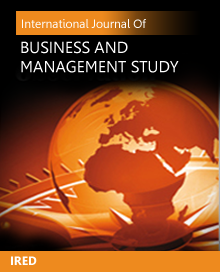The influence of Magufuli in promoting economic development of Tanzania
Author(s) : JANE EDWARD KING, NORMAN ADAMSON SIGALLA KING
 Abstract
Abstract
Economic development requires both an understanding of ventures that will bring about development, and people who stay willing to see the development is natured. It is the strategy that is put in place to make people who are willing to extort, do so. To have a readily community for adhering what is written or preached by their leader such as president Magufuli is really in Africa. In Tanzania we had four presidents already. The fifth president is John Pombe Joseph Magufuli, a doctoral holder. We want to examine if the society has accepted the way this fifth president is doing in order to boost Tanzania economy and development at large. We have taken members of parliament of Tanzania as pure representatives of the people. Hence, our population for the study is 393 members of parliament. Although those who filled the questionnaires were 256. We have taken 55 members of parliament on board through interviews. Hence a total of 256 members of parliament have actively participated in the study. The study was carried in Dodoma during the month of October 14th 2019 to November 15th 2019. The first two weeks members of parliament met on committee functions. The rest of the two weeks, members of parliament were attending the parliamentary session. The study is qualitative in nature, and has used the questionnaires and interviews as data collection methods. The paper concludes that members of parliament had four major responses. 1) That the president has attained what most president could not attain. 2) The president has taught people to love their homes than keeping moving from one country to another for the search of lives. 3) The president has made almost all other leaders to be firm like him, to act like him and do like him. 4) The current situation in terms of finance is weak but projects are being heavily implemented.
 Full Paper PDF
Full Paper PDF
